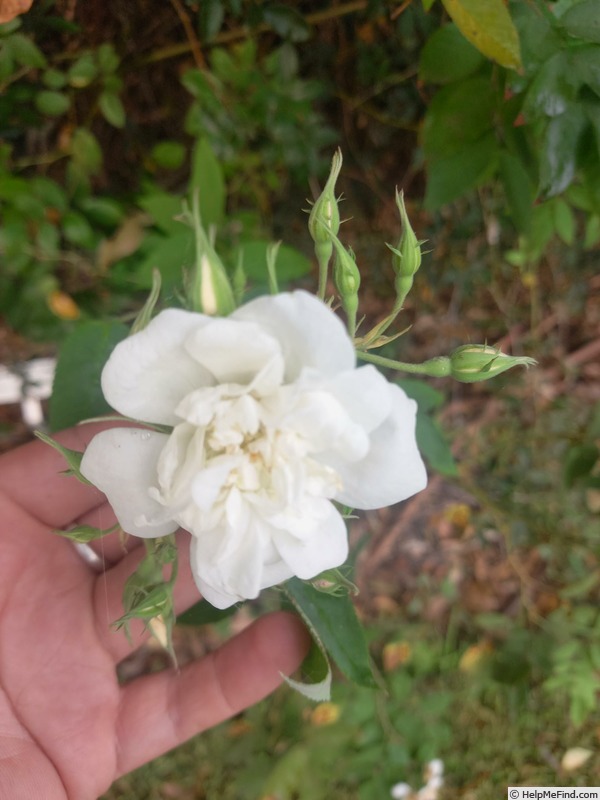|
|
'Nastarana' rose Description

Photo courtesy of Tiffany B
HMF Ratings:
35 favorite votes.
Average rating:
EXCELLENT.
ARS:
White, near white or white blend Noisette.
Registration name: Nastarana
Exhibition name: Nastarana
Bloom:
White, pink shading. Small, semi-double (9-16 petals), cluster-flowered bloom form. Blooms in flushes throughout the season.
Habit:
Bushy, upright, well-branched.
Height: 15' to 18' (455 to 550cm).
Patents:
Patent status unknown (to HelpMeFind).
Notes:
Parentage uncertain, see References for more information.
Rosa godefroyae Carrière. Rev. Hort., [sér.6], 1886: 261.
Found in Iran by Pissart (1879), decribed and named R. godefroyae by Carriere, France (1886), distributed by the English nursery Paul & Son as 'Pissardii' and now in commerce as 'Nastarana'. Not identical to R. moschata var. nastarana Christ. 'Nastarana' in commerce is cluster-flowered while R. moschata var. Christ = R. pissarti Carr. has solitary flowers emitting directly from the cane and arranged in a spiral form - see Photos. Most later literature describes the plant introduced by Paul erroneously as R. moschata var. nastarana Christ .
|